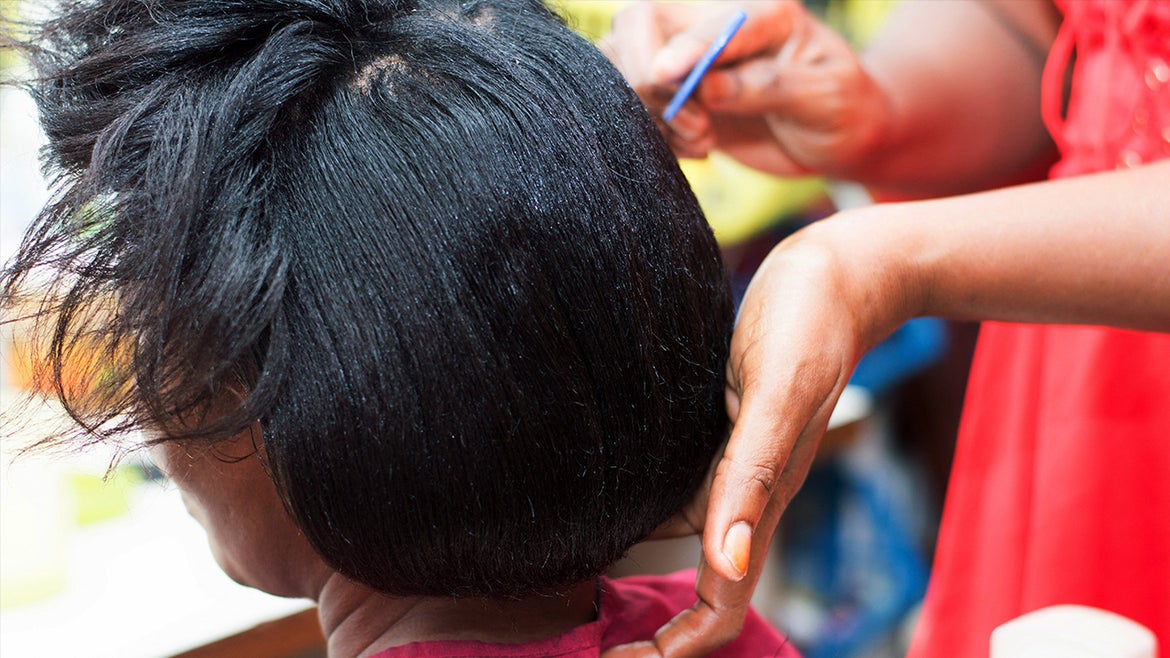Researchers highlighted that this discovery may be particularly problematic for Black women, who are more likely to use hair-straightening chemical products.
A recent study from the National Institutes of Health found that women who frequently used chemical hair-straightening products were at higher risk of developing uterine cancer than women who reported they did not use them.
The study indicates that women who have used chemicals in their hair had an elevated risk of hormone-related cancer; researchers highlight that this discovery may be particularly problematic for Black women, who are much more likely to report using such products.
This information comes from a study containing 33,497 U.S. women between the ages of 35 to 74 that are participating in the Sister Study. This Sister Study is an NIH research effort to identify causes of cancer by enrolling women with breast cancer and their sisters, according to the Sister Study’s website.
Uterine cancer is one of the most common cancers of the female reproductive system but only accounts for 3% of new cancer cases, according to the NIH. The hormone-related cancer has been increasing in incidence and mortality rates in the U.S, with 65,950 new cases in 2022 alone, reports the NIH.
“We estimated that 1.64% of women who never used hair straighteners would go on to develop uterine cancer by the age of 70; but for frequent users, that risk goes up to 4.05%,” said Alexandra White, Ph.D., lead author on the new study. “This doubling rate is concerning. However, it is important to put this information into context - uterine cancer is a relatively rare type of cancer.”
The study also discussed that while there was no difference in the risk ratios between various races, more research is needed to study the adverse risk to Black and/or African American women due to their increased usage of these hair products.
“More research is warranted to confirm our novel findings in different populations, particularly in African American and/or Black women because of the high prevalence of straightener use, and to evaluate the potential contribution of hair products to health disparities in uterine cancer,” according to the study.
A limitation of the study was that it did not account for specific ingredients in the straighteners. The paper mentioned different chemicals in these hair products, such as formaldehyde, that have already been linked to cancer but they did not ask specifically for the ingredients of specific straightening or pressing products, according to the study.
“Future efforts are also needed to identify the chemical ingredients, which might result in the elevated rates. Given the widespread use of hair products and the rising incidence of uterine cancer, our findings which identify hair straightener use as a potential target for intervention are particularly relevant for public health approaches to reduce uterine cancer incidence,” the study reported.






